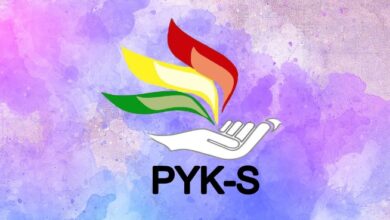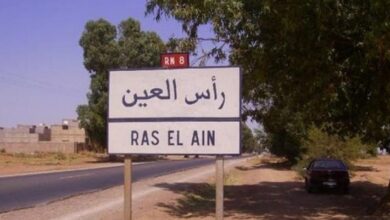
ICC: Palestine is Newest Member
Court Membership Could Open Door for Justice to Victims
The ICC treaty officially went into effect for Palestine on April 1, 2015, giving the court a mandate dating back to June 13, 2014, over serious crimes, including war crimes and crimes against humanity committed on or from Palestinian territory.
“Governments seeking to penalize Palestine for joining the ICC should immediately end their pressure, and countries that support universal acceptance of the court’s treaty should speak out to welcome its membership,” said Balkees Jarrah, international justice counsel at Human Rights Watch. “What’s objectionable is the attempts to undermine international justice, not Palestine’s decision to join a treaty to which over 100 countries around the world are members.”
On January 2, 2015, Palestinian authorities transmitted a copy of Palestine’s ICC accession instrument to the United Nations Secretariat. As depository for the ICC treaty, the UN secretary-generalofficially accepted the document on January 6 and circulated a notification indicating that Palestine would formally become an ICC state party on April 1, making it the 123rd member of the court. On January 1, the Palestinian government had also lodged a declaration, giving the court a mandate back to June 13, 2014, to cover the 2014 conflict in Gaza.
Based on her policy for when she receives declarations accepting the court’s jurisdiction, Fatou Bensouda, the ICC prosecutor, opened a preliminary examination into the situation in Palestine on January 16. During the preliminary examination phase, the prosecutor determines whether the criteria have been met to merit pursuing a formal investigation.
The US has stated that it does not believe that Palestine is a state and that it is therefore ineligible to join the ICC. The US also opposes an ICC investigation of Israeli officials. In December, President Barack Obama signed into law an appropriations act that would cut off some aid to the Palestinian Authority if “the Palestinians initiate” or “actively support” an ICC “judicially authorized” investigation “that subjects Israeli nationals to an investigation for alleged crimes against Palestinians.” Seventy-five US Senators have alsourged the Obama administration to make clear that the ICC is not a “legitimate or viable path for the Palestinians.”
From January to March, Israel withheld about US$400 million in tax revenue that Israel collects on behalf of Palestinian authorities in response to the decision by the Palestinian president, Mahmoud Abbas, to join the ICC. As a result, 160,000 Palestinian public employees have been paid only 60 percent of their salaries for three months. On March 27, Israel announced it would release some of the accrued Palestinian tax revenue.
Despite reports that the Palestinians are set to lodge a complaint against Israel at the ICC, only the court’s prosecutor and in some instances its judges have the authority to decide what cases – if any – to pursue for investigation based on the information available, Human Rights Watch said. However, countries may submit information to the prosecutor for analysis by her office.
“The ICC prosecutor examines allegations of serious crimes no matter the perpetrator, and makes her own determinations about how to proceed based on the evidence” Jarrah said. “Any decision whether to pursue an investigation and against whom is not in the hands of the Palestinians or the Israelis.”
The Office of the Prosecutor’s ongoing inquiry includes analyzing whether ICC crimes have been committed, whether those crimes are sufficiently grave to merit the court’s attention, and whether national authorities are genuinely carrying out credible investigations and, if appropriate, prosecutions in relation to potential cases being considered for investigation by the court, Human Rights Watch said.
There is no specific timeline for how long a preliminary examination might take, which varies from situation to situation. Bensouda has said she is conducting eight other preliminary examinations in situations around the world, including in Afghanistan, Colombia, Georgia, Iraq, Nigeria, and Ukraine.
Human Rights Watch documented unlawful attacks, including some that are war crimes, during the 2014 hostilities in Gaza. Fighting killed more than 1,500 civilians in the Gaza Strip, damaged hospitals and other critical infrastructure, and destroyed the homes of more than 100,000 Palestinians. Palestinian armed groups launched rockets and mortars indiscriminately toward Israeli population centers.
Neither side has yet to make meaningful progress in providing justice for serious laws-of-war violations during the 2014 conflict. Israeli military inquiries into the Gaza hostilities are ongoing, and Israel has announced an investigation by its state comptroller. The Palestinian government in the West Bank and Hamas in Gaza are not known to have carried out any investigations. Both Israel’s and the Palestinians’ history of accountability for violations by their forces is poor, Human Rights Watch said.
At issue is not only both sides’ conduct of the Gaza war. The ICC statute also classifies as a war crime an occupying power’s transfer of its own civilians “directly or indirectly” into territory it occupies. The transfer of people in the occupied territory from their homes to within or outside this territory is also a war crime.
Since it occupied the Palestinian territories in 1967, Israel has facilitated the movement of its citizens into West Bank settlements, including East Jerusalem. Since Benjamin Netanyahu became Israel’s prime minister in 2009, Israel has begun construction of more than 10,400 settlement homes. Israeli demolitions in the West Bank during the same period left more than 5,333 Palestinians homeless, including 1,103 in 2013 and 1,177 in 2014. Israel published tenders for 450 new settlement units in the West Bank on January 30.
“Given that the ICC prosecutor will act only in the absence of credible national proceedings, both Israeli and Palestinian authorities have the opportunity to avoid the court’s intervention by undertaking their own genuine investigations and prosecutions,” Jarrah said. “In the absence of credible domestic efforts, the ICC could step in to diminish the accountability gap for grave abuses.”




